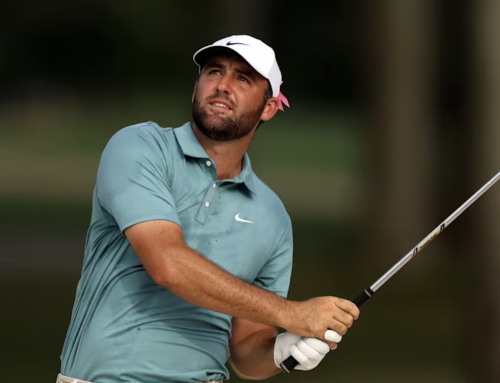Andrew Lawton:
As I and many others have written previously, the political left has been winning the culture war for years. Whatever little victories have been gained by social conservatives as of late have been dwarfed by a general backslide in society on a number of conscience issues. In my efforts to diagnose this problem, I’ve identified a chief attribute that makes this possible – shamelessness.
The culture wars are won when one side manages to position anything other than its own values as outside the bounds of what one should be allowed to think in a civil society. Managing this requires some institutional control of course – the media, academia, political leadership, and so on – but also the hubris to set out and enforce a ‘correct’ position.
By shrinking the Overton window (the term political scientists use to describe what is politically possible), you can make everyone else look like pariahs.
I’m addressing this in general terms for a reason: once this template is established, it can be applied to any political situation imaginable, irrespective of individual nuances and circumstances. Transgender bathrooms, the abolition of biological sex, and more recently adherence to the myriad Covid regulations that still seem to linger even in the absence of Covid cases.
(Alberta readers are allowed to smirk to themselves while this Ontarian writes about mask mandates and increasing calls for vaccine passports.)
Despite Andrew Breitbart’s famous – and generally accurate – proposition that politics is downstream of culture, the Covid era has shown us how politics can influence culture – when individuals in a society are ready to abdicate their decision-making to the state, that is. By invoking platitudes like “we’re all in this together” and a contrived sense of “community,” political leaders and public health advisors have imposed a range of restrictions that threaten personal liberty, religious freedom, and even freedom of speech.
The latest battle is being waged over vaccine passports. While Alberta’s government has decisively said no to government-issued vaccine certifications, provinces like Manitoba and Quebec have gone the other way. A jurisdiction that credentializes vaccination in this way is stratifying society along the lines of what should be a personal decision.
By giving people the ability to prove they’re vaccinated, the government is inviting people and businesses to start discriminating along these lines.
It’s ironic that those who cling to “pro-choice” bona fides on abortion have often been the most vocal about thinking vaccination should be mandatory, or at the very least required in order to engage in aspects of civil society like going to a restaurant or attending a concert. The “my body, my choice” mantra was always disingenuous, though the hypocrisy has been more pronounced throughout the vaccination discourse.
More concerning than the governments that have gone along with this has been the backlash against those who haven’t.
A Nanos poll in August found that 54 per cent of Canadians agree with mandatory vaccinations, and 21 per cent somewhat support them. That’s three quarters of the country more amenable to requiring vaccination than not. At that level, what government does is less significant than what people believe.
In the absence of official vaccine passports, there was still a number of gyms and restaurants which established their own policies of mandatory vaccination for customers. CNN has fired some employees for refusing to get vaccinated. These stories will continue.
Now, I’m of the mind that business owners should be allowed to make decisions for their businesses just as customers can decide to shop elsewhere if they don’t like the rules. I believed this when we were all talking about Christian bakers and gay wedding cakes, and would be a hypocrite to not apply it to vaccination policies. That doesn’t mean I celebrate these decisions, however. In just 18 months of the pandemic mindset, Canadians have abandoned any sense of living in a society. The implications of this will be long-lasting: snitching on neighbours for having “illegal” gatherings, reporting businesses for selling non-essential products, and now demanding proof of vaccination.
I wouldn’t go so far as to say that elections are meaningless, but when cultural attitudes stand in opposition to individual values, no electoral result will deal with the underlying issue plaguing society.
I can’t help but wonder to what extent locking people out of places of worship contributed to this decline. In the absence of church and fellowship, the only ‘preachers’ from whom Canadians heard with any regularity were government officials, and their press conferences are hardly food for the soul.




